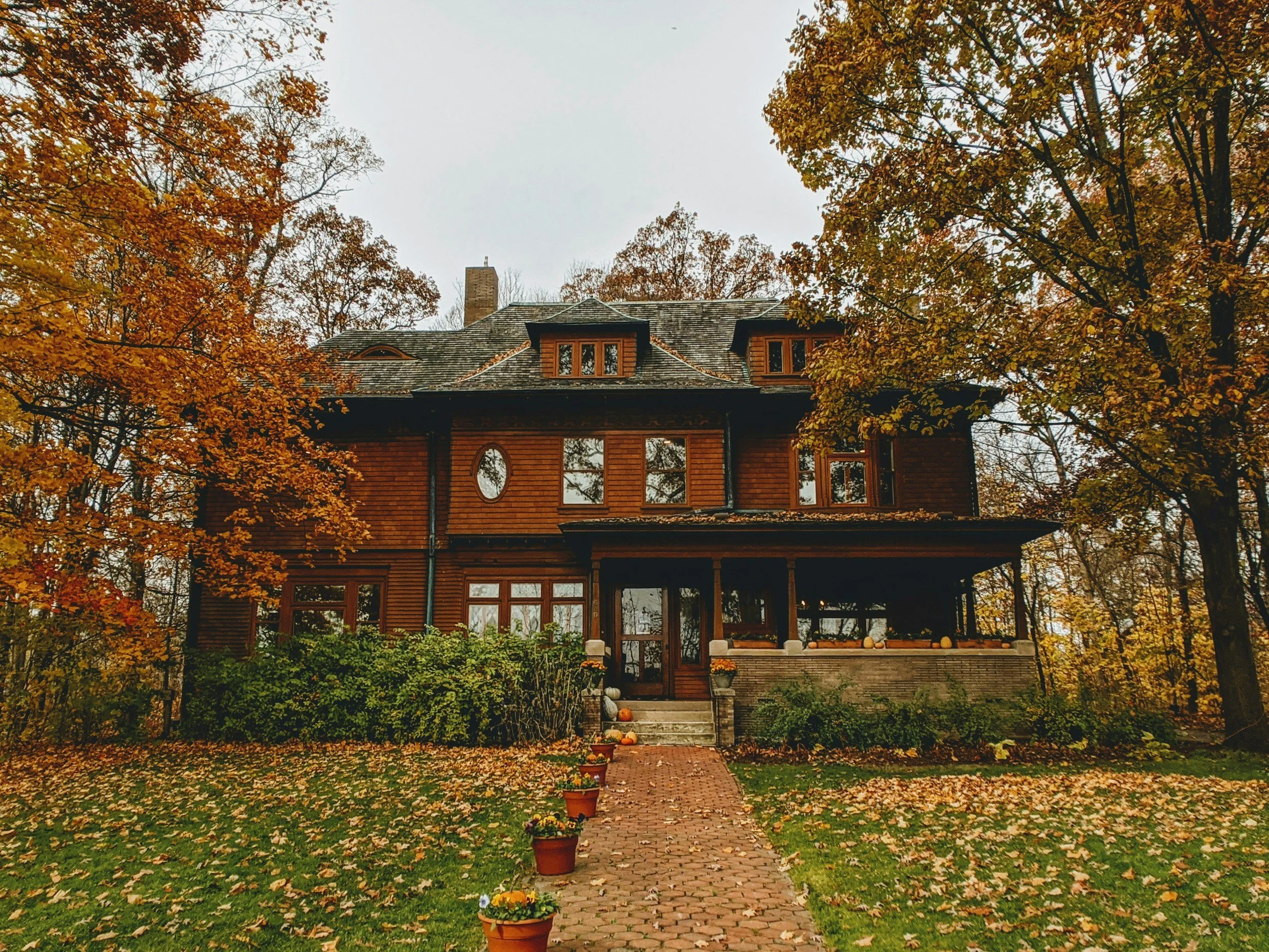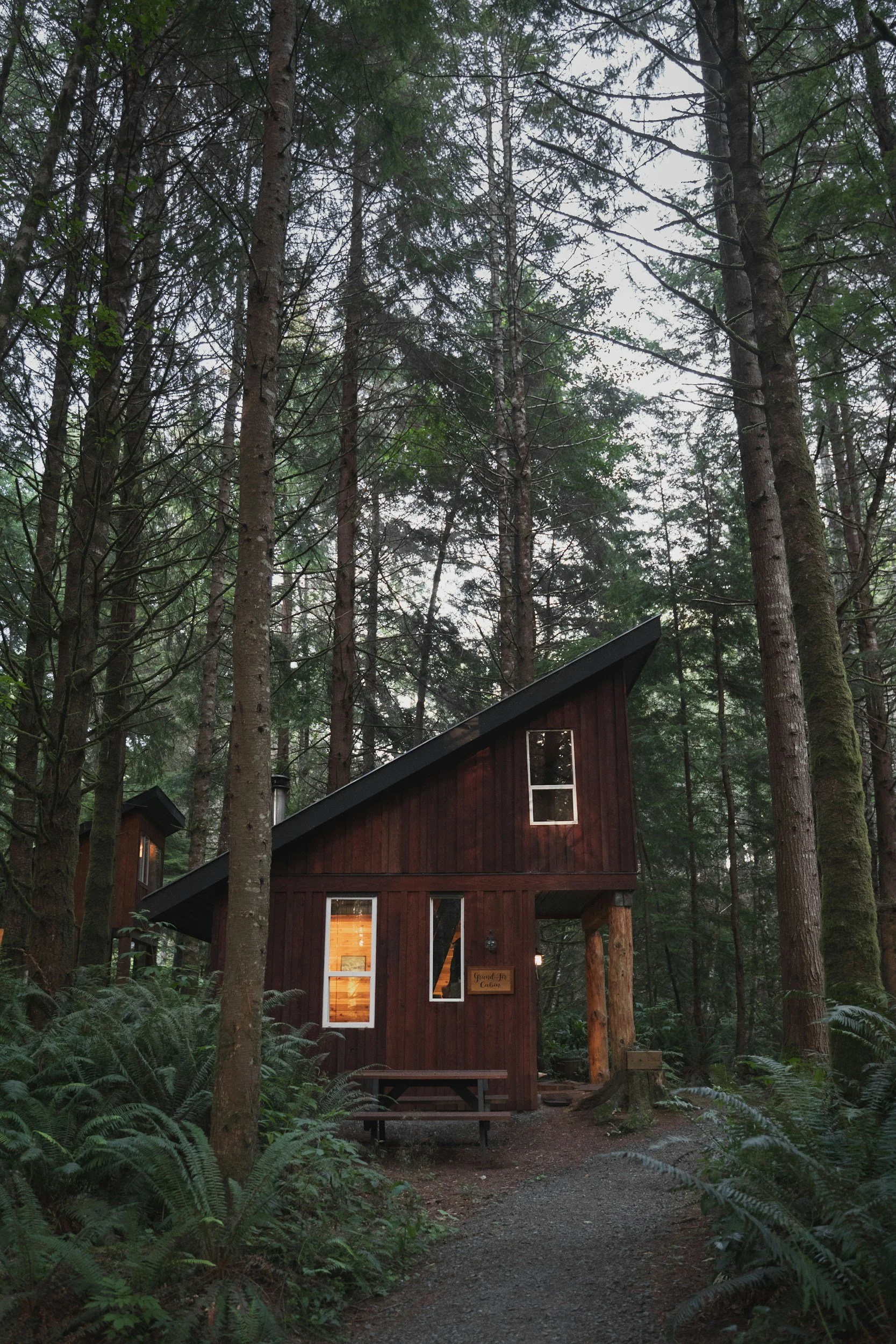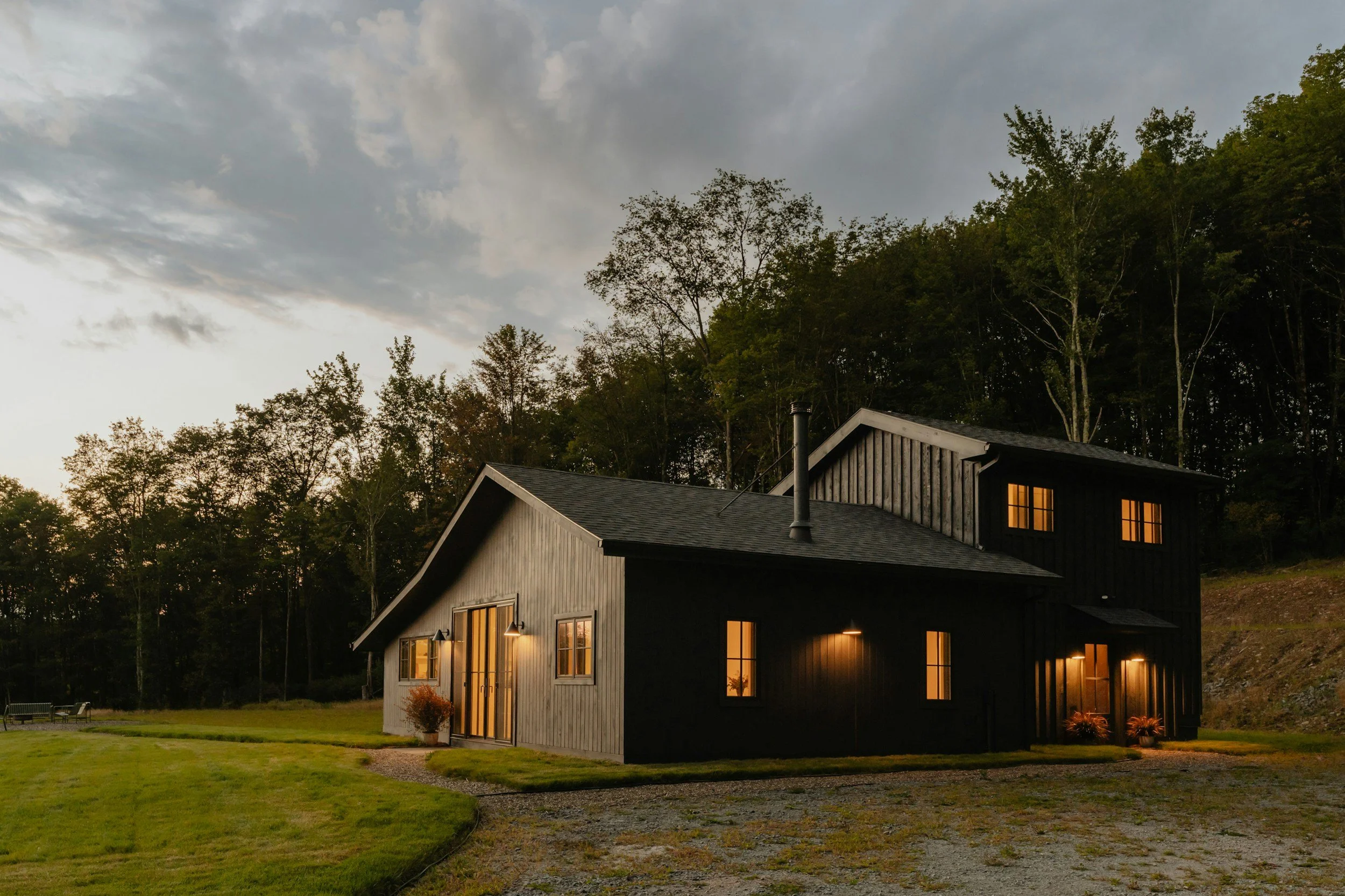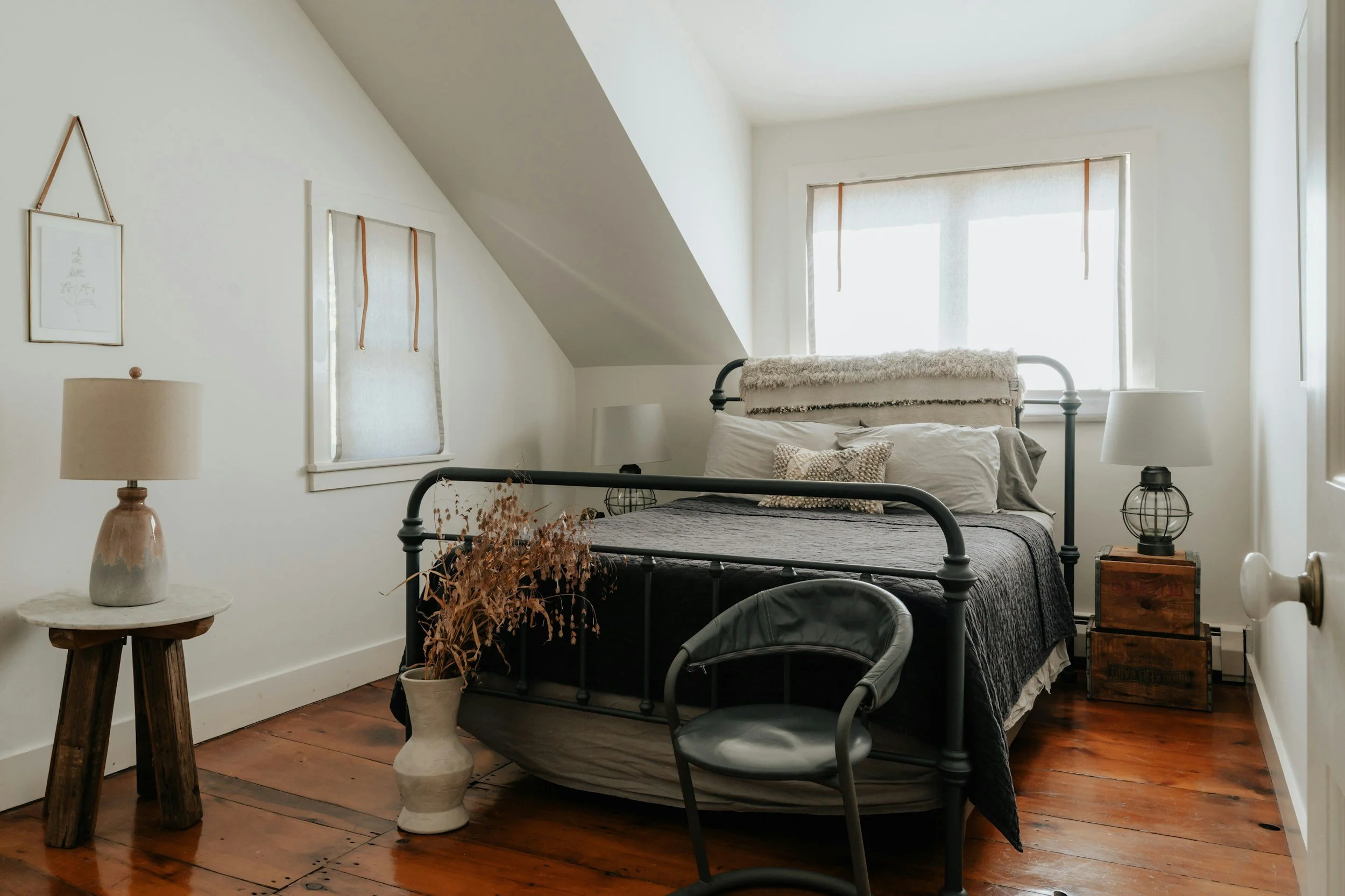A Year After Hurricane Helene: How Asheville’s Housing Market Is Recovering
It’s been one year since Hurricane Helene brought historic flooding and widespread damage to Asheville and many parts of Western North Carolina. For those of us who call this region home, the past twelve months have been filled with rebuilding, reflection, and a renewed focus on resilience—not just in our communities, but in our homes and neighborhoods too.
The storm that hit on September 26, 2024, wasn’t just another weather event. It was a watershed moment that fundamentally changed how we think about homeownership, property values, and what it means to build a life in the mountains of Western North Carolina.
While the Asheville housing market isn’t “back to normal” yet—and may never return to exactly what it was before—there are clear signs of steady recovery and compelling reasons to feel cautiously optimistic about the future.
Whether you’re a homeowner still weighing your options, a buyer hoping to find your foothold in the market, or an investor considering opportunities in our resilient community, here’s what’s changed in the year since Helene—and what it means for your next move.
The Storm That Changed Everything
Hurricane Helene was the type of storm that reshaped not just landscapes, but also mindsets across Western North Carolina. Areas near the French Broad River, Swannanoa River, and other low-lying parts of Buncombe County experienced unprecedented flooding that caught even long-time residents off guard.
The Immediate Impact on Housing
The storm’s effect on Asheville’s real estate market was swift and dramatic:
Property Damage: Hundreds of homes that had never experienced water damage were suddenly uninhabitable. Properties in areas previously considered “safe” from flooding found themselves under several feet of water.
Market Disruption: Insurance claims skyrocketed into the hundreds of millions. Home inspections and appraisals became significantly more complex as professionals grappled with assessing both visible and potential hidden damage.
Seller Uncertainty: Many property owners pulled their listings immediately after the storm, unsure how to price homes with new flood histories or navigate disclosure requirements for future sales.
Buyer Hesitation: Real estate activity slowed dramatically as potential buyers—especially those relocating from other areas—paused their searches to better understand flood zones, infrastructure vulnerabilities, and long-term risks.
Beyond the Numbers: The Human Impact
The statistics tell only part of the story. Families who had lived in the same neighborhoods for generations suddenly questioned whether they should rebuild or relocate. Young professionals who had recently moved to Asheville for its quality of life found themselves reassessing their long-term plans. Retirees who had chosen the area for its perceived stability faced unexpected challenges to their housing security.
For many, Hurricane Helene wasn’t just about property damage—it was about reimagining what “home” means in an era of increasing climate uncertainty.
The Road to Recovery: What We’ve Learned
Infrastructure Improvements and Community Response
The past year has seen remarkable community resilience and systematic improvements:
Enhanced Flood Management: Buncombe County and the City of Asheville have invested heavily in improved drainage systems, early warning networks, and emergency response protocols.
Building Code Updates: New construction and major renovations now require enhanced flood-proofing measures, improved foundation standards, and more resilient utility installations.
Community Preparedness: Neighborhoods have developed stronger communication networks, emergency supply chains, and mutual aid systems that make the entire region more resilient.
Insurance Market Evolution
The insurance landscape has shifted significantly:
Flood Insurance Awareness: Many homeowners who previously didn’t carry flood insurance now understand its importance, leading to increased coverage across the region.
Premium Adjustments: Insurance costs have risen in some areas, but competitive markets and improved risk assessment have kept increases more manageable than initially feared.
Coverage Innovation: Insurance companies are offering new products specifically designed for climate-resilient homes, rewarding property owners who invest in protective improvements.
Where Things Stand Now: Fall 2025
One year later, the Asheville housing market is in a phase of measured recovery that reflects both caution and optimism. Here’s what that really looks like on the ground:
1. Inventory Dynamics: Quality Over Quantity
While we’re not seeing a surge of new listings, the properties coming to market tell a story of thoughtful recovery:
Upgraded Properties: Many homes that were taken off the market after the storm are now returning with significant improvements. These aren’t just cosmetic updates—they’re comprehensive upgrades including new HVAC systems, improved electrical work, enhanced drainage, and flood-resistant materials.
New Construction Standards: Builders are incorporating lessons learned from Helene, designing homes with elevated utilities, improved drainage systems, and more durable materials as standard features rather than luxury upgrades.
Strategic Timing: Sellers are being more thoughtful about when and how they list, often waiting until improvements are complete and documentation is thorough.
What this means for sellers: If your property has been professionally repaired and updated post-Helene, you’re likely to stand out in a market where buyers are prioritizing resilience and peace of mind.
What this means for buyers: Be prepared to act quickly on quality properties, and work with a local agent who understands flood zones, building codes, and insurance requirements specific to post-Helene Asheville.
2. Pricing Reality: Stability Amid Uncertainty
Contrary to dramatic post-disaster bounces seen in some markets, Asheville’s pricing has shown remarkable stability:
Overall Market Stability: Home values have largely stabilized rather than crashed or surged, reflecting the underlying strength of Asheville’s appeal balanced against new risk awareness.
Neighborhood Variations: Areas that experienced significant flooding have seen modest price adjustments—typically 5-15% below pre-storm levels—while higher elevation neighborhoods have maintained or even slightly increased their values.
Value Redefinition: The market is placing new premiums on flood-resistant features, reliable utilities, and emergency accessibility, sometimes offsetting location-based discounts.
Renovation Premiums: Homes with documented post-Helene improvements often command higher prices than comparable properties without recent updates, as buyers recognize the value of modern, resilient systems.
3. Buyer Behavior: Informed Decision-Making
Today’s Asheville home buyers are asking more sophisticated questions and making more informed decisions:
Due Diligence Evolution: Buyers routinely request flood history documentation, elevation certificates, insurance claim records, and detailed information about utility reliability and emergency access.
Long-term Thinking: Rather than focusing solely on immediate needs, buyers are considering how properties will perform over 10-20 year timeframes, including potential climate impacts and infrastructure changes.
Professional Partnerships: More buyers are working with teams that include not just real estate agents, but also insurance specialists, environmental consultants, and contractors who understand resilient construction.
4. The New Definition of Desirable Features
The storm has fundamentally shifted what buyers value in properties:
Resilience Over Aesthetics: Homes with solid infrastructure, reliable utilities, and proven weather resistance are commanding attention over properties that prioritize purely cosmetic features.
Practical Luxury: Features like whole-house generators, sump pumps, smart home monitoring systems, and flood-resistant flooring are increasingly seen as essential rather than optional.
Location Reconsideration: Proximity to reliable infrastructure, higher elevation, and emergency services access have become key factors in neighborhood desirability.
Strategic Insights for Today’s Market Participants
For Prospective Buyers
Get Pre-Approved with Local Lenders: Work with mortgage professionals who understand post-Helene insurance requirements and can navigate any complications related to flood history or required improvements.
Invest in Local Expertise: Partner with real estate professionals who have deep knowledge of flood maps, elevation certificates, building codes, and neighborhood-specific recovery patterns.
Look Beyond Initial Concerns: Many attractively priced homes have been professionally restored and are now better equipped for future weather events than they were before the storm.
Budget for Insurance and Improvements: Factor flood insurance, potential utility upgrades, and emergency preparedness improvements into your overall homeownership budget.
Consider Long-term Value: Properties with documented resilience improvements may offer better long-term value and easier resale than those without such upgrades.
For Current Homeowners Considering Selling
Document Everything: Maintain comprehensive records of any storm-related repairs, improvements, or insurance work. This documentation is invaluable for both pricing and buyer confidence.
Highlight Resilience Features: Emphasize any post-Helene improvements in your marketing, including new HVAC systems, waterproofing, drainage updates, electrical upgrades, or FEMA-compliant modifications.
Time Your Market Entry Strategically: Fall and winter often bring serious buyers who are motivated to close before year-end or who have taken time to thoroughly research the post-Helene market.
Price Realistically: Work with agents who understand current market dynamics and can help you price competitively while highlighting your property’s unique strengths.
Consider Buyer Incentives: Offering to cover flood insurance premiums for the first year or providing warranties on recent improvements can differentiate your property.
For Investors and Long-term Planners
Focus on Resilient Properties: Investment properties with documented flood resistance, reliable utilities, and strong emergency access may offer better long-term returns and lower maintenance costs.
Understand Insurance Implications: Factor ongoing insurance costs and requirements into investment calculations, as these will significantly impact long-term profitability.
Consider Infrastructure Trends: Properties near planned infrastructure improvements or in areas benefiting from enhanced flood management may see stronger appreciation over time.
Looking Ahead: Reasons for Optimism
Economic Fundamentals Remain Strong
Despite the challenges, Asheville’s underlying economic drivers remain intact:
Tourism Recovery: The tourism industry has rebounded strongly, with visitors returning to experience Asheville’s resilient spirit and natural beauty.
Business Continuity: Most local businesses have reopened, often with improved infrastructure and stronger emergency preparedness.
Population Growth: People continue moving to Asheville for its quality of life, outdoor recreation, and cultural amenities—factors that weren’t diminished by the storm.
Community Strength
The response to Hurricane Helene has revealed the depth of community connections and mutual support that make Asheville special:
Neighborhood Networks: Many areas have developed stronger communication and support systems that enhance both daily life and emergency preparedness.
Local Business Support: The community’s commitment to supporting local businesses has strengthened the economic foundation that supports property values.
Government Responsiveness: Local and state government responses have demonstrated commitment to long-term resilience and infrastructure improvement.
Moving Forward Together
Asheville has always been a place where nature and community are deeply intertwined. Hurricane Helene was a painful reminder of how quickly things can change—but also a powerful testament to the strength, creativity, and resilience of our region.
The housing market is still healing, and it’s not back to where it was before September 2024. But it’s moving in a thoughtful direction, shaped by lessons learned and a community committed to rebuilding smarter, stronger, and more sustainably.
This isn’t just about returning to normal—it’s about creating a new normal that acknowledges both the beauty and the power of the natural environment we share, while building homes and communities that can thrive alongside both.
Your Next Steps in the New Landscape
Whether you’re considering buying your first home, selling a property you’ve lovingly restored, or making an investment in Asheville’s future, the key is approaching these decisions with both optimism and realism.
The market rewards preparation, local knowledge, and long-term thinking. It values transparency, quality improvements, and genuine community connection. Most importantly, it recognizes that the best properties aren’t just houses—they’re homes that can weather whatever comes next while supporting the lives and dreams of the people who live in them.
If you’re ready to explore your options in this evolving market, I’m here to provide the local insight, practical strategies, and honest conversation you need to move forward with confidence. No pressure, no fluff—just real guidance from someone who understands both the challenges and opportunities of calling Asheville home.
Ready to discuss your specific situation and goals? Let’s schedule a free consultation to explore how the current market dynamics might work for or against your plans, and develop a strategy that makes sense for your timeline and priorities.
Schedule Your Free Connection Call
Together, we can navigate this new landscape and help you make the housing decision that best serves your future in our resilient, remarkable region.
If you are looking to transform your space, interested in Asheville real estate, or just want to say hi, I'd love to connect!
Thinking about buying or selling near Asheville NC?
READ MORE
FOLLOW ON INSTAGRAM
Book a Call




























